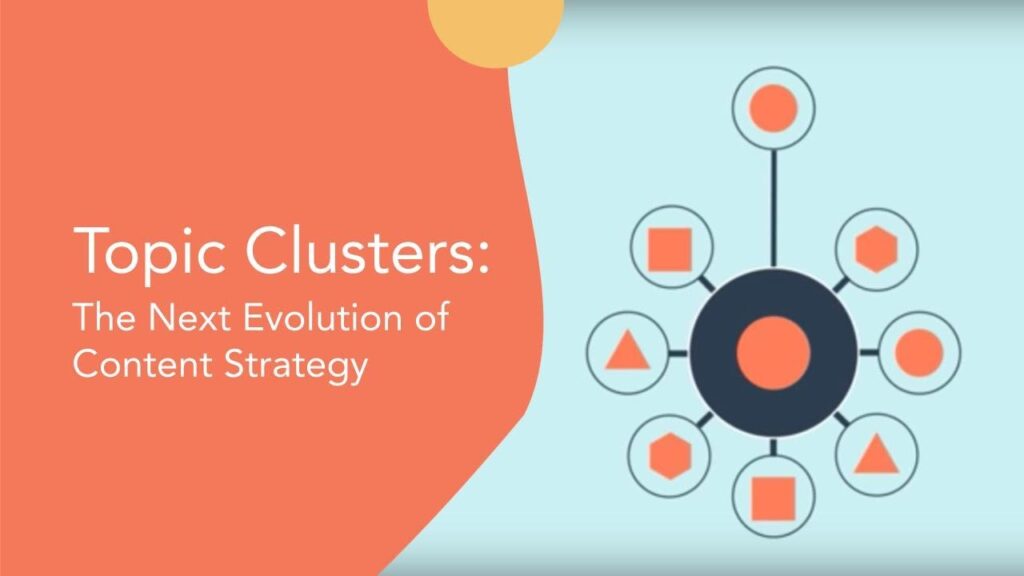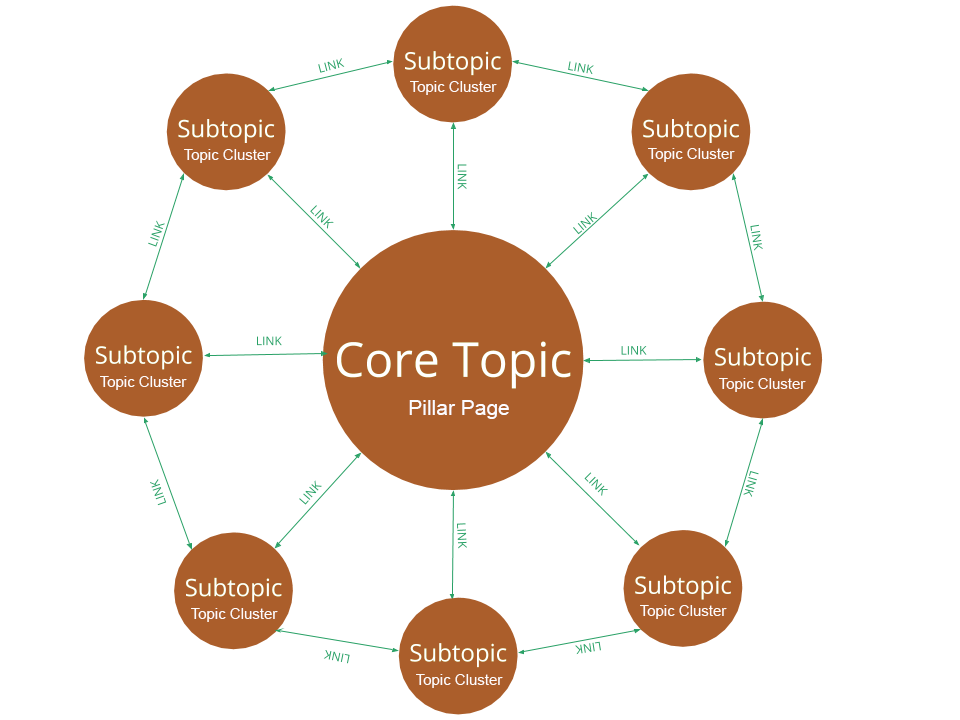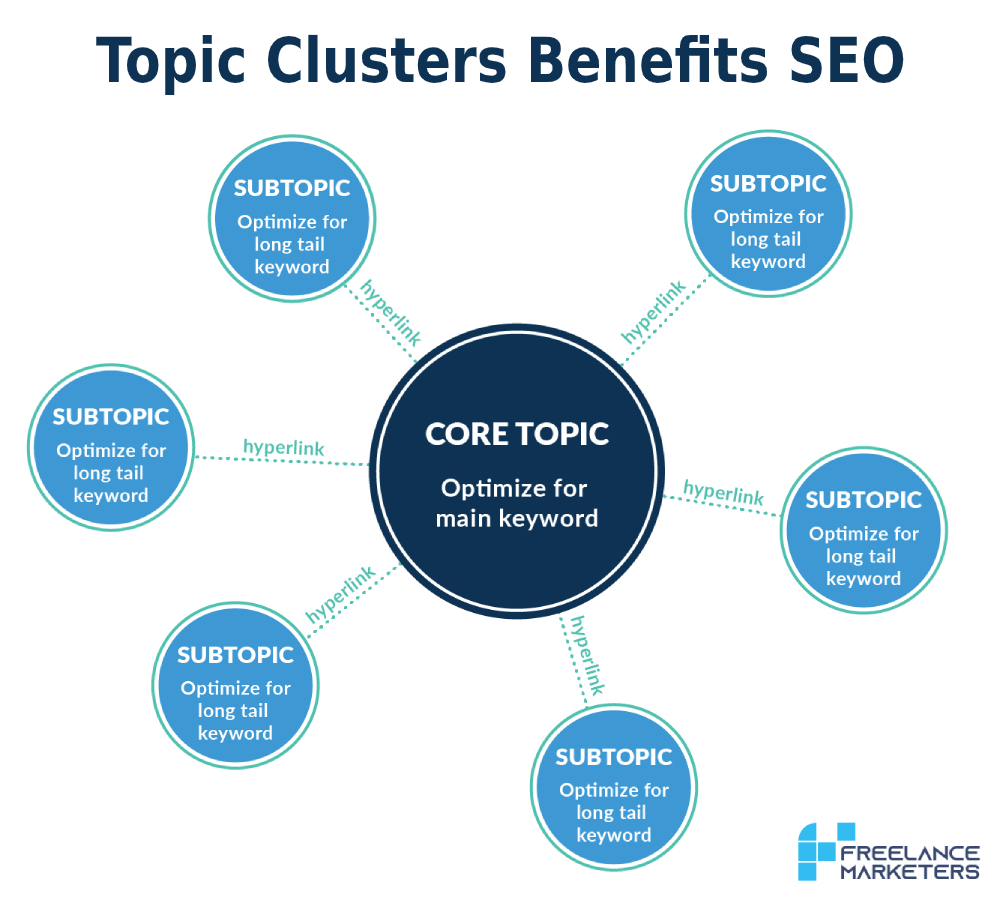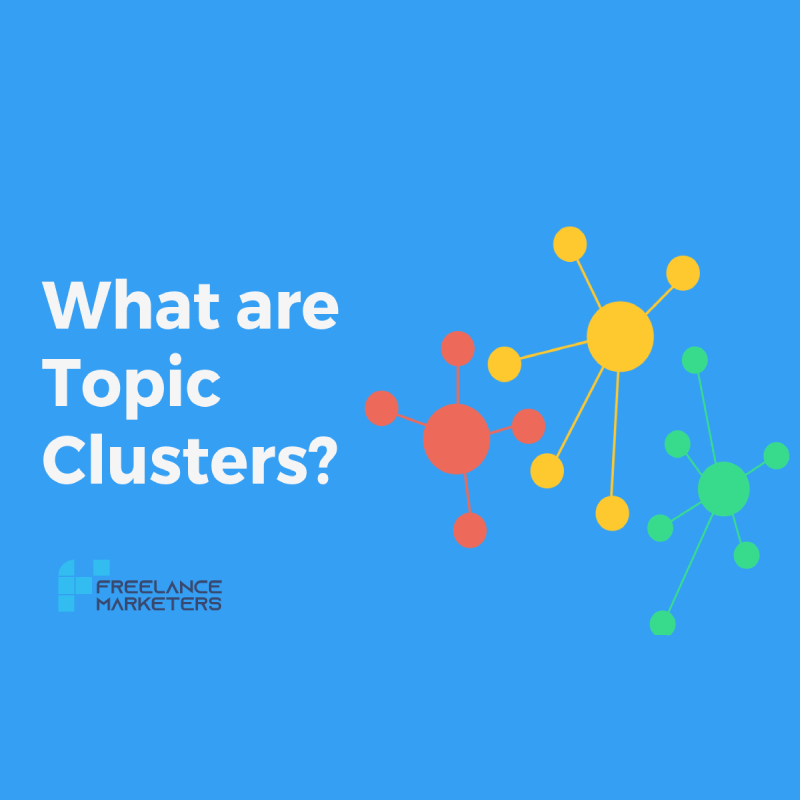What are the topic clusters? Does it impact or benefit the website’s SEO? What are some vital topic cluster considerations while planning pillar pages? Let us learn all here!
Simply put, if you are considering a pillar page approach to better your search authority on a particular topic or merely to create a broader range of relevant content for your audience – topic clusters must be on your strategy.

It is no secret that the topic clusters model is a way to create content that Google loves while building a library of content that is super useful to your target audience.
You can even Hire SEO Analyst to be sure about your pillar page and topic cluster approach for better outcomes.
Curious to learn what topic clusters are? Let us begin the discussion!
About Topic Clusters
A group of interlinked web pages that are constructed around a pillar content that targets a broad topic is what we knew as a Topic Cluster. It is based on the concept that search visibility about a particular topic is much improved than ranking for a particular keyword.
Such an agenda eventually helps you grow an area of influence wherein the overall sum of searches for topically relevant long-tail keywords surpasses the sum of searches for a major keyword. This will surely aid you in organizing the structure of your website as well as the content. Besides, if one blog post in the cluster does well in rankings, the whole cluster also ranks well.
Typically, the three components of the Topic Cluster Model are:
- Pillar Content
- Cluster Content
- Hyperlinks (Links)

Let us dig into these components more profoundly.
Pillar Content
The pillar content is the cluster core, as it is based on the broader topic. Usually, it is 3,000 to 5,000 words long that covers all the aspects of a specific topic but still leaves room for different posts to answer. People who are not familiar with a certain topic, but want to see a comprehensive overview of it, the pillar content is great for them.
Cluster Content
This component deals with all cluster content that is connected to the pillar content. The cluster content focuses on a specific keyword that is related to your broad keyword, unlike the pillar content that tackles a broad topic – discussing it more comprehensively and thoroughly. Ultimately, such a cluster content contains a link that leads your audience back to the pillar content.
Hyperlinks
It is the most vital component out of all three. The reason behind this is the hyperlinks are the ones that bind the pillar content to the cluster content.
Any Best SEO Expert can help you deal with all three components effectively!
The Way Topic Clusters Benefits SEO – Add Them In Your Content Strategy
Doing proper cluster planning is beneficial for numerous reasons.
At first, if you structure the content in this way that interlinks and is optimized to include relevant topic keywords, it will make search engines believe that you have the authority on that specific topic. This way, your pillar content and related topic cluster content will rank better in search results and draw bigger, more targeted traffic and sales.
Other than that, if the topics and subtopics you pick for your content all address subjects relevant to your ideal targeted readers and serve them to solve a challenge they’re experiencing – this leaves you with a wide library of valuable content, that not only enhances your authority with your ideal customers but also within search results.
The best part is that you can make more than one topic hub too. You may need a cluster of relevant content around each one or want to create a range of pillar pages on different topics. Planning your content in this way can lead to a diverse range of content across many topics that all have a positive, and greater impact!

Some Topic Cluster Considerations
Prior to revamping your content strategy approach entirely, it’s vital to be sure that a pillar page and topic cluster approach will work for the topic that you want to focus on, and also where you want to gain authority.
Hence, you must consider:
Is the subject you want to rank for hold enough search volume to justify the time and resource dedication needed?
Before any content planning or creation, in-depth keyword research is a vital step to be sure that there is interest and traffic behind your proposed topics. It may help to start by identifying 5-10 core, top-level challenges that your clients and prospects had, and you have solved while considering potential pillar page topics. Further, you can break these into broad topic areas and can base initial research around them.
Does the topic carry the potential to warrant the creation of a range of detailed topic cluster content and pillar page?
The content audit may be an essential consideration here; you may already have content that you can use within your topic cluster to endorse a pillar page.
If the topic is relevant to your targeted, best-fit readers, and is something where you want to be counted as an authority.
If your content is irrelevant to your audience, then there’s no value in creating it in a large volume! Not to forget that the intention here is to create lots of content that your customers and prospects want to read. Be focused on it, and you’ll be off to a good start!
Well, you can always take help from an expert SEO Researcher to be sure about the earlier considerations.
In a nutshell…
Topic clusters and pillar pages, with the right planning and consideration, can form an integral part of your SEO & content strategy, and work hard together, to enhance your search presence, drive relevant traffic, and develop your authority on the topics you are concerned for.
Finding a better SEO Professional for apt cluster planning? Contact us at Freelance Digital Marketers! For years we have been helping our clients with white-label SEO techniques which further helps them boost traffic to their business and make their target audience reach them.
Reach Us & Experience Success!


